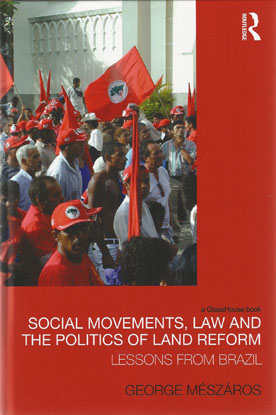We will be closed from 5pm Thursday 17th April for the Easter Bank Holidays, re-opening at 8.30am on Tuesday 22nd April. Any orders placed during this period will be processed when we re-open.

Social Movements, Law and the Politics of Land Reform investigates how state and rural social movements are struggling for land reform against the background of a re-emergence of constitutional promises and projects in much of the developing world.
By the early 1990s, as state driven was eschewed in favour of neo-liberal market principles, the historic centrality of rural conflicts was called into question. And accelerated urbanisation – most notably in China, India and Latin America – appeared to spell the death of the peasantry itself.
Nevertheless, significant struggles continue: in China, largely in response to land grabs by powerful coalitions of speculators and party officials; in India, as low caste tenant farmers and landless indigenous people continue to demand land redistribution; in South Africa, and elsewhere. This book focuses on the relationship between these struggles and the state.
Taking Brazil as an example, Social Movements, Law and the Politics of Land Reform outlines the complex reasons behind the failures of its constitution and law enforcement mechanisms to deliver social justice. Whilst developments there have distinctive origins, they nevertheless provide important lessons and insights for other countries.
In particular, it is argued that Brazil’s failures – as elsewhere – are based not simply on the severe and widespread overestimation of the promise of law – its power and autonomy – but, more significantly, upon a corresponding underestimation of law’s relations of power.
Using detailed empirical evidence the book develops a threefold argument: first, the inescapable presence of power relations in all aspects of the production and reproduction of law; secondly their dominant impact on socio-legal outcomes; and finally, given the significance of power relations, the essential role played by social movements as a force in the realisation of law’s progressive potential.